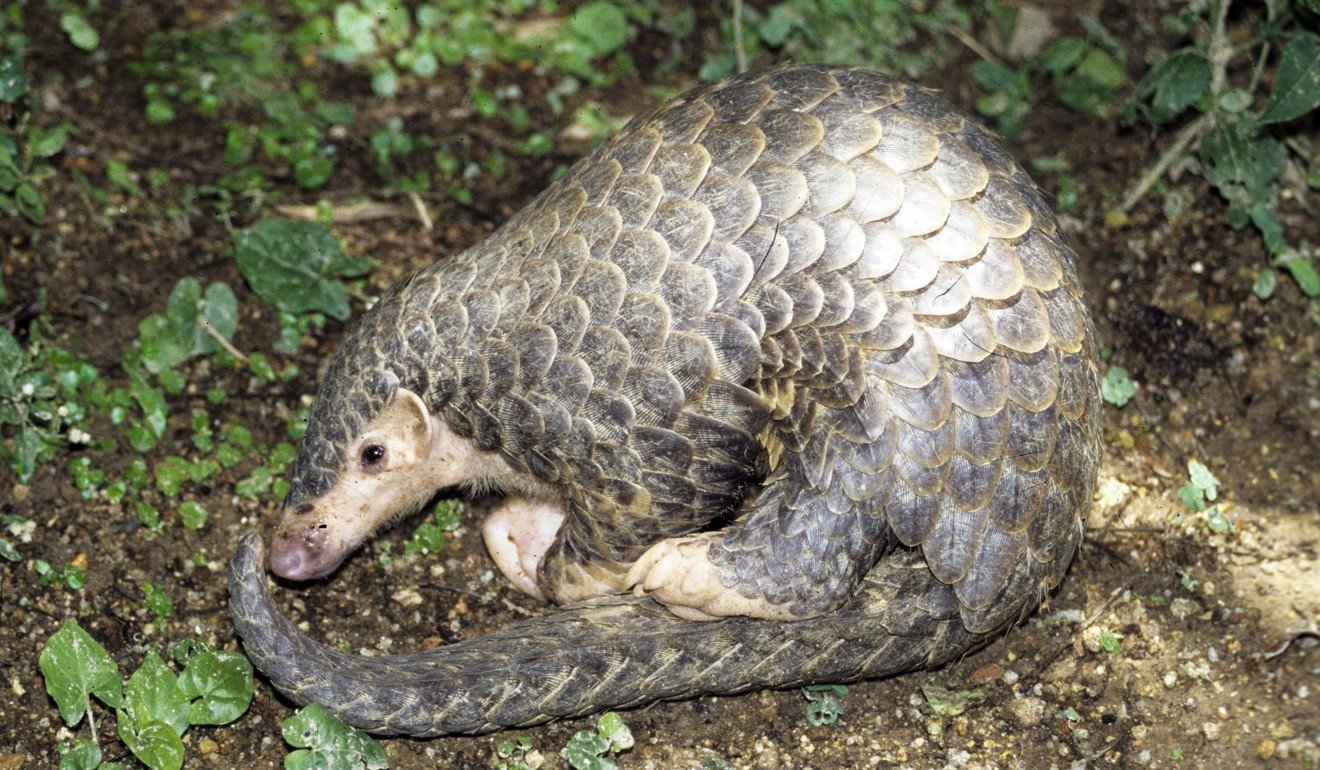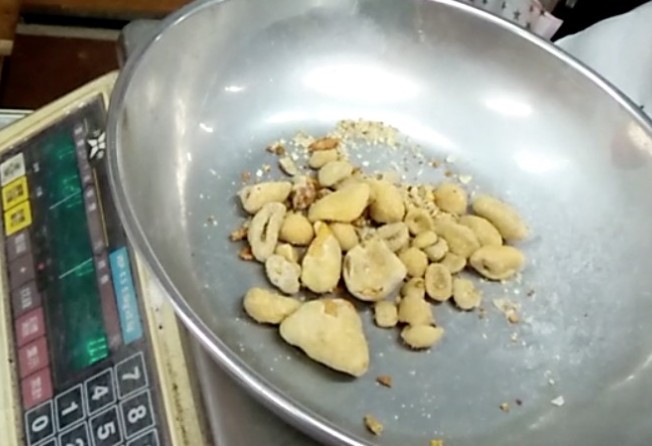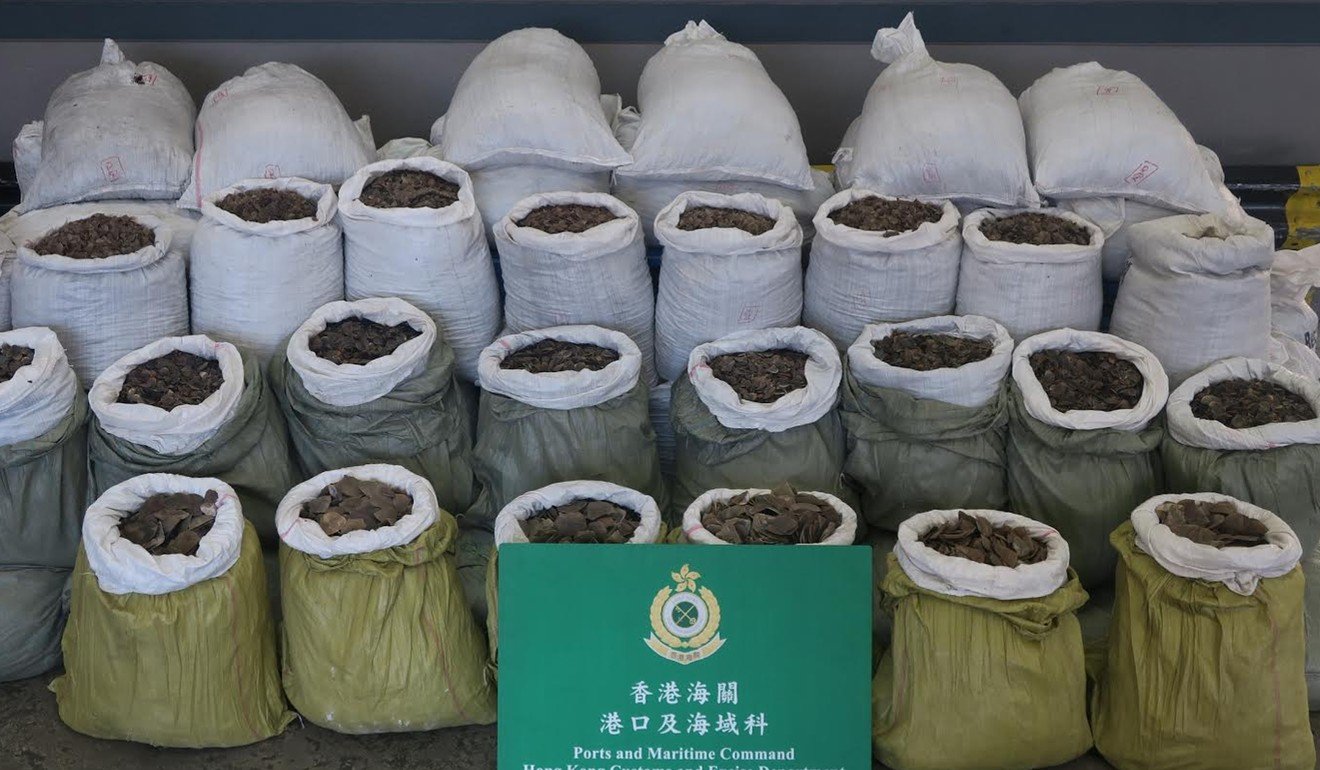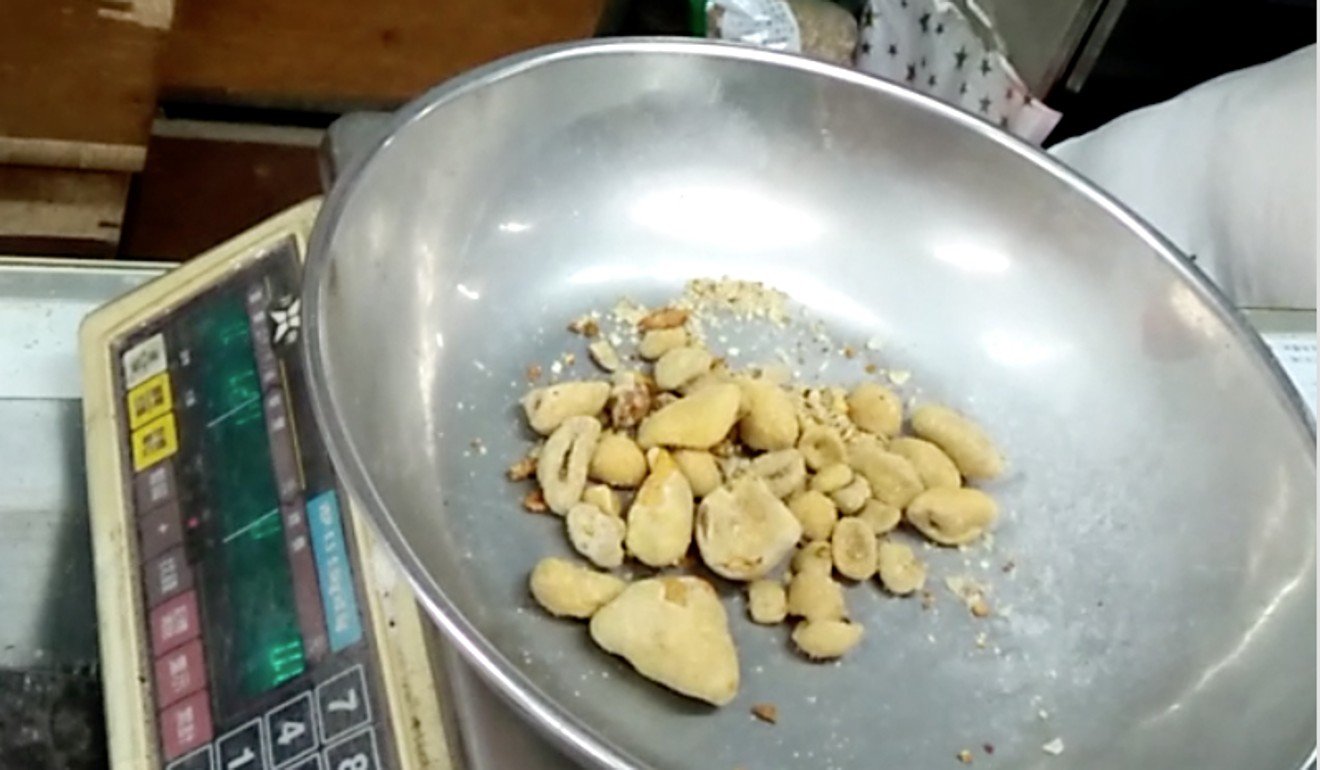
Scales of endangered pangolin on sale in Hong Kong as loophole in law allows shops to cash in – but mostly to ‘people they know’
Trading has been banned internationally since 2016 because of rampant poaching of the animals but Hong Kong has yet to amend ordinance

A legal loophole in Hong Kong allows traditional Chinese medicine shops to profit from selling pangolin scales, despite a global trade ban on the endangered animal since 2016, the Post has found.
The revelation came with authorities having already seized a five-year-high quantity of smuggled pangolin scales in the first seven months of 2018, with most of the goods coming from Africa.
Over 15 tonnes of pangolin scales were seized by Hong Kong customs from January to July this year, government statistics show, almost double the 7.9 tonnes for the whole of 2017 and more than the 14 tonnes in 2016.

The heaviest penalty imposed for smuggling the pangolin scales through Hong Kong to other places over the past five years was a two-month jail sentence.
Hong Kong has become a transit point for smuggling pangolin scales into mainland China in recent years, with shipments mostly originating in Africa.
The most recent incident was in late July, when Hong Kong customs found a 7.1 tonne haul – the second-biggest seizure of its kind in a decade – of pangolin scales hidden in a 40-foot container in Tsing Yi which came from Nigeria. The scales were packed in 284 bags in the container destined for Guangdong province, a law enforcement source said.
In May last year, a similarly large haul weighing 7.2 tonnes was found in a container from Nigeria.
Since 2014, the city has seized more than 47 tonnes of pangolin scales, with most smuggled from African countries including Nigeria, Cameroon and Mozambique.
Eight species of pangolins are found globally, in Asia and Africa, two of which are critically endangered. Trading in all of them has been banned internationally under the Convention on International Trade in Endangered Species of Wild Fauna and Flora (CITES) since 2016 because of rampant poaching for their meat and scales. The animals were transferred from CITES Appendix II to Appendix I, giving them the highest level of protection.

Yet, Hong Kong will only amend the existing law, which takes effect in November, to ban people from selling pangolin scales without a licence.
Processed pangolin scales are believed to have medicinal value such as promoting lactation.
The Post visited about 10 traditional Chinese medicine shops in Sheung Wan and posed as a customer looking for scales. Most shop owners said they did not stock scales and some acknowledged that pangolins were protected wildlife.
But in a shop on Queen’s Road, an elderly man first said it was illegal to sell the scales – but then asked the reporter: “How much do you want?”
He later showed the scales, offering about HK$11 (US$1.41) per gram. He said they were from Guangxi province in China and he would get more in a few days. He added some were shredded to make it easier to bring into Hong Kong.
An employee at another shop on Queen’s Road said Chinese medicine shops in Hong Kong would not do business with strangers on pangolin scales. “They usually sell to people they know and in large quantities,” she said.

Because it is not a sovereign state, Hong Kong is not a signatory to CITES but follows its provisions strictly under the scope of local laws.
According to the Agriculture, Fisheries and Conservation Department, under the current legislation, namely the Protection of Endangered Species of Animals and Plants Ordinance, pangolins are still on CITES Appendix II, meaning they do not require a permit for trade in Hong Kong before the amendment takes effect.
Alex Andersson, founder of Hong Kong for Pangolins, said the only practical way to eliminate the loophole was to discontinue all sales of pangolin scales including old stock.
She also called a two-month jail sentence “simply meaningless”, and urged the government to allow the highest courts to handle illegal wildlife trade.
“As a hub of international wildlife trade, Hong Kong needs to take a leading role in demonstrating its intolerance for such activities,” she said.
Under the ordinance, the maximum penalty for importing or exporting an endangered species without a licence is 10 years in jail and a HK$10 million fine.